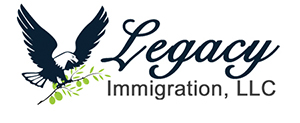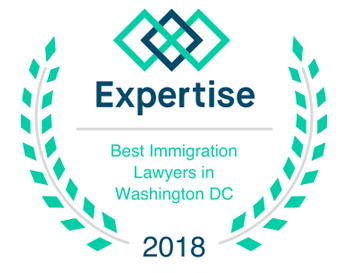When applying for a green card, a person must be “admissible.” There are various grounds that the USCIS can use to find you or a loved one inadmissible. It is difficult and sometimes impossible to get around these grounds. One such ground of inadmissibility is being considered “a public charge”. So, what is a “public charge?” A public charge is someone who primarily depends on the government to support themselves. You may recall having to file the Form I-944 during the Trump Administration. But then it disappeared…
Well, the federal government has recently announced a final rule on the “public charge” ground of inadmissibility that will soon go into effect. This rule affects those who have received certain “public benefits” and would ordinarily to be found admissible.
What Is Public Charge Inadmissibility?
When you apply for a green card to become a lawful permanent resident (LPR), one reason why USCIS can find you “inadmissible” is if you are, OR, are likely to become a public charge. Under previous guidelines, receipt of certain non-cash benefits were considered in determining if someone was inadmissible as a public charge which are no longer considered under the new rule. This includes:
- Federally-funded Medicaid
- Supplemental Nutrition Assistance Program
- Public housing
The federal government is codifying the 1999 Interim Field Guidance into a new rule. The programs stated above will not be considered for determining public charge inadmissibility.
How Will This Change Affect Me?
If you are currently receiving any of the above benefits, this factor will not negatively affect you when you apply for a green card. Even if you are receiving some type of government assistance, you may be exempt from public charge inadmissibility depending on the grounds you are applying for admission, including if you are:
- Seeking refugee or asylum status
- Seeking T or U nonimmigrant status
- Seeking Temporary Protected Status
- Self-petitioning under the Violence Against Women Act
There are other classifications of immigrants who may not be subject to the public charge inadmissibility ground. An experienced immigration lawyer can review your situation and explain the process that is best aligned to help you accomplish your goals.
When Does the New Rule Go into Effect?
The new rule is set to go into effect on December 23, 2022. It will apply to any applications that are postmarked on or after that date.
Under the New Rule, What Will Be Considered When Determining Whether a Public Charge Exists?
USCIS determines if an applicant is likely to become a public charge based on the following information:
- Their age, health, education, skills, and family status
- Their financial status, including assets and resources
- Whether they have a sponsor who has submitted Form I-864, when applicable
The programs that the USCIS will consider in determining public charge inadmissibility include:
- SSI
- Temporary Assistance for Needy Families (TANF)
- State and local cash assistance programs, generally referred to as “General Assistance” programs, for income maintenance
- Long-term institutionalization at government expense, such as in a nursing home or mental health institution
What Will Not Be Considered?
Applicants who are concerned about how their receipt of benefits may impact their claim are best guided by consulting with a knowledgeable immigration lawyer. Receipt of benefits from some of the following specific programs will not be considered by the USCIS in determining the public charge ground of inadmissibility:
- Public assistance for free COVID-19 testing, vaccinations, or treatment or public assistance for immunizations or testing and treating communicable diseases
- Receipt of Medicaid and other public health insurance and health services (except for long term institutional care), including emergency medical services, health clinics, and short-term rehabilitation services
- Short-term institutionalization for rehabilitation
- Receipt of public benefits related to COVID-19, including for food, housing, cash assistance, stimulus payments, rental assistance, unemployment, and student loan forbearance
- Receipt of public benefits for The Children’s Health Insurance Program
- Nutrition programs, such as WIC
- Emergency disaster relief
- Energy assistance
- Housing benefits
- Payment for childcare services
- Head Start Act benefits
- Student financial aid and job training programs
- Short-term shelter, crisis counseling and intervention, and soup kitchen benefits
- State and local programs that are similar to the federal programs listed above
- Earned cash payments, such as Social Security benefits or veterans’ benefits
Because the government no longer considers receipt of certain benefits in their evaluation of public charge inadmissibility, applicants do not need to complete Form I-944 or provide information about receipt of such benefits. Applicants should also use the most recent version of certain forms rather than discontinued versions that may ask about no longer relevant receipt of public benefits.
We were there to help our clients during the Trump Administration with the Form I-944 (not a single client was denied) and will be there to help our new clients again! After we are retained to prepare your green card application, we will work with you to make sure your application is not denied for this reason. So don’t let the receipt of public aid stand between you and your green card!










